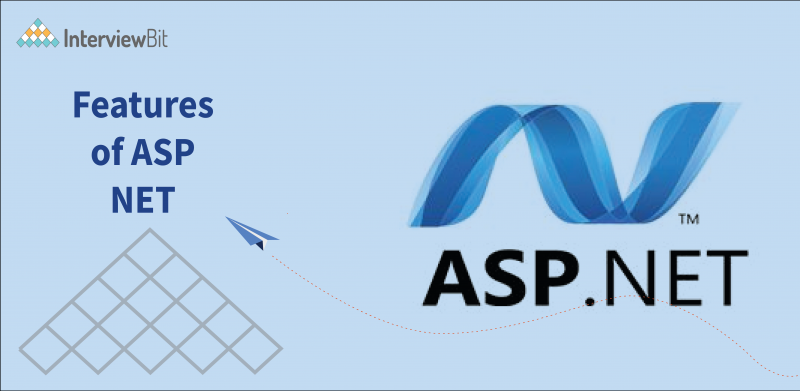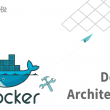- Top Features of ASP.NET
- 1. Extremely High Performance
- 2. Support for Cross-Platform and Container Environments
- 3. Asynchronous with the use of Async/Await
- 4. Comprehensive Development Environments
- 5. Independence from a particular language
- 6. Support for Web Sockets
- 7. Filters for Taking Action
- 8. Globalization and Localization of Markets
- 9. Security
- 10. Support for HTML5 Form Types
- 11. NET Web API (Application Programming Interface)
- Conclusion
- FAQs
Microsoft’s ASP.NET web application development framework is one of the most widely used and profitable web application development frameworks. With each release, new and enhanced capabilities are introduced to assist developers in developing and deploying massively scalable and more excellent web applications.
When used in conjunction with application monitoring and other productivity tools, such as a profiler, ASP.NET provides a strong option for developing great applications. ASP.NET
There are many features of ASP.NET built into the framework that will assist you in overcoming typical development issues, accomplishing more with your applications, and improving performance.
Confused about your next job?
In this article, we have mentioned the top features of ASP.NET to understand better.
Top Features of ASP.NET
Let’s take a closer look at some of the most critical aspects of ASP.NET so that we may construct a better application.
1. Extremely High Performance
Performance is always an essential element for every program or software, regardless of its kind. Because of its use of ASP.NET Core and the Kestrel web server, it has been referred to as the quickest and most responsive web application framework currently available on the market. It is more responsive and lightweight due to the addition of the Kestrel web server. It also offers the benefit of asynchronous programming approaches, which are beneficial. All other programming languages use interpreters, such as Python, Java, JSP, and PHP. Compilers, on the other hand, are far quicker than interpreters. All of the code is taken into consideration by the compiler and is compiled simultaneously. As a result, it is quick due to the usage of compiler-based technology in ASP.NET.
2. Support for Cross-Platform and Container Environments
When we state it supports cross-platform, we are referring to the fact that it supports Windows, macOS, and Linux. As a result, if we develop an ASP.NET application, we will be able to deploy and run it immediately on these platforms.
3. Asynchronous with the use of Async/Await
Asynchronous programming patterns are now supported by all of the.net framework’s classes and third-party libraries and frameworks. Your knowledge of asynchronous patterns in kestrel frameworks explains why asp.net is quicker than other programming languages. On the other hand, most programs spend a significant amount of time waiting for database queries, web service calls, and input-output activities to finish before continuing.
4. Comprehensive Development Environments
We will utilize an integrated development environment (IDE), such as Visual Studio, if we develop the application. In addition, it offers a powerful development environment that allows us to quickly drag and drop components (radio buttons, checkboxes, and so on) to build the application from scratch.
5. Independence from a particular language
The framework is language-neutral, which means that developers may utilize a variety of programming languages, such as C#. As a result, it is simple for a developer to create their application in a language that they are familiar with. It is possible to construct a dynamic web application in any of the languages listed above.
6. Support for Web Sockets
Sockets are used to develop client-server applications that communicate with one another. For example, standard socket programming allows us to create web-based, client-server applications. These are responsible for the browser’s back-and-forth communication. It is also used for creating the most common chat applications.
7. Filters for Taking Action
ACTION FILTERS are a fantastic feature that is supported by the NET framework. These filters create error handling, authorization, caching, and any other custom logic that we would want to include in our application. There is the logic that has been built, and that will be run before and after the operation of the controller. Action filters are used to put this reasoning into action.
8. Globalization and Localization of Markets
The web application is hosted by us and may be viewed from any location in the world. Language, date and time formats, number formats, and currency must all be distinct to differentiate between areas or nations. Because ASP.NET is designed to allow globalization, customers or individuals from other countries will comprehend and use this program. With the use of resource files, we may adapt our program to work in several different languages. These files serve as a central store for all texts, and they are accessible from anywhere.
9. Security
Because it is compatible with the.net framework, it will ensure the security of our application. Because each application has its unique identification, before allowing it to run ,.net will verify the objects’ authenticity. It will also assess the overall security of the operating system. Our designed program is safe and secure due to its pre-application setting and the feature of built-in Windows authentication that it includes. Your apps are safe and secure because of the built-in Windows authentication and per-application setup options.
10. Support for HTML5 Form Types
It adds support for HTML5 form types to the mix. For example, email, URL, numeric input, RNGE (radio frequency generation), date selection (week, day, and month), time selection (date and time zone), colour selection, and search are all accessible in HTML5.
11. NET Web API (Application Programming Interface)
This contains web forms written in ASP.NET. Web API allows you to consume and construct HTTP services simply.
Conclusion
In addition to providing customers with improved speed and reliability, ASP.NET is a fantastic framework that is open to everyone and is essential in developing online and cloud applications that are in step with today’s digital world. We hope that the features mentioned above of ASP.NET will help you understand ASP.NET better.
FAQs
Q1: What is unique about ASP.NET?
Ans: As a whole, an ASP.NET framework is a fantastic tool for designing websites and web-based applications for the web. It is dependable, quick, simple to use, completely free, and well-renowned. In addition, ASP.NET provides complete control over your development and can be utilized on any project, no matter how large or little it is.
Q2: What are the benefits of ASP.NET?
Ans: The following are some of the benefits of using ASP.NET:
- In addition, since Asp.Net is a server-side technology, you must first execute the code on the Windows server before it can show in a web browser. As a result, ASP.net applications are faster to run than interpreted scripts.
- Early binding, JIT compilation, cache services, and native optimization are just a few of the ASP.Net capabilities that help you achieve a high degree of speed. In addition, With.NET, you are not restricted to only JIT but also have the option of using AOT if you wish to remove startup delays entirely.
- Because the Asp.Net framework is language-neutral, you may use any programming language (such as C#, J#, VB, or others) that is most appropriate for your application.
- The data types defined by the Common Language Specification get used in all cases.
- Because web apps are comparable, there is no need to do a Type conversion when contacting them.
- Net methods, C++, C#, Visual Basic from Visual Basic, or the other way around.
- With complete support for XML, CSS, and other emerging and established web standards, ASP.NET is a powerful online development platform.
- Because of the introduction of view state, it is possible to automatically keep the controls’ state between postback events.
- Because of the built-in configuration information, Asp.Net is simple to set up and use. Furthermore, there is no need to register components since the configuration information has already get stored.
- Finally, Asp.Net minimizes the number of lines of code required to construct large-scale applications.







 Join WhatsApp Group
Join WhatsApp Group


